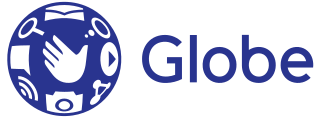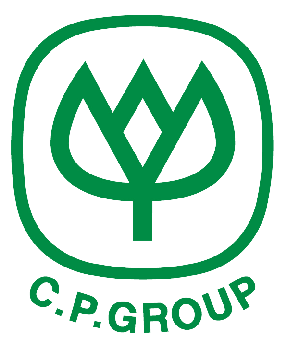Related Research Articles

The dot-com bubble was a stock market bubble that ballooned during the late-1990s and peaked on Friday, March 10, 2000. This period of market growth coincided with the widespread adoption of the World Wide Web and the Internet, resulting in a dispensation of available venture capital and the rapid growth of valuations in new dot-com startups.

Telenor ASA is a Norwegian majority state-owned multinational telecommunications company headquartered at Fornebu in Bærum, close to Oslo. It is one of the world's largest mobile telecommunications companies with operations worldwide, but focused in Scandinavia and Asia. It has extensive broadband and TV distribution operations in four Nordic countries, and a 10-year-old research and business line for machine-to-machine technology. Telenor owns networks in 8 countries.

There are several types of mass media in the United States: television, radio, cinema, newspapers, magazines, and web sites. The U.S. also has a strong music industry. New York City, Manhattan in particular, and to a lesser extent Los Angeles, are considered the epicenters of U.S. media.

The Nippon Telegraph and Telephone Corporation (NTT) is a Japanese telecommunications holding company headquartered in Tokyo, Japan. Ranked 55th in Fortune Global 500, NTT is the fourth largest telecommunications company in the world in terms of revenue, as well as the third largest publicly traded company in Japan after Toyota and Sony, as of June 2022.
Technological convergence is the tendency for technologies that were originally unrelated to become more closely integrated and even unified as they develop and advance. For example, watches, telephones, television, computers, and social media platforms began as separate and mostly unrelated technologies, but have converged in many ways into an interrelated telecommunication, media, and technology industry.
Corporatization is the process of transforming and restructuring state assets, government agencies, public organizations, or municipal organizations into corporations. It involves the adoption and application of business management practices and the separation of ownership from management through the creation of a joint-stock or shareholding structure for the organization. The result of corporatization is the creation of state-owned corporations where the government retains a majority ownership of the corporation's stock. Corporatization is undertaken to improve efficiency of an organization, to commercialize its operations, to introduce corporate and business management techniques to public functions, or as a precursor to partial or full privatization.
The telecommunications industries within the sector of information and communication technology is made up of all telecommunications/telephone companies and internet service providers and plays a crucial role in the evolution of mobile communications and the information society.

Globe Telecom, Inc., commonly shortened as Globe, is a major provider of telecommunications services in the Philippines. The company operates the largest mobile network in the Philippines and one of the largest fixed-line and broadband networks. As of November 2023, Globe has 54.7 million subscribers, making it the second largest network in terms of subscriber base.

Tristan Louis is a French-born American author, entrepreneur and internet activist.

The Charoen Pokphand Group Company, Ltd. (CP) is a Thai conglomerate based in Bangkok. It is Thailand's largest private company and the largest privately held Royal Warrant holder of the Thai Royal Family. The company describes itself as having eight business lines covering 13 business groups. As of 2020, the group has investments in 21 countries.
HM Capital Partners was a private equity firm in the United States that specialized in leveraged buyouts. The firm was previously known as Hicks, Muse, Tate & Furst. It was founded in 1989 by Tom Hicks and John Muse as Hicks, Muse & Co. and was changed in 1994 to reflect the roles of Charles Tate and Jack Furst.

Comverse Technology, Inc., often referred to as simply Comverse, was a technology company located in Woodbury, New York in the United States, that developed and marketed telecommunications software. The company focused on providing value-added services to telecommunication service providers, in particular to mobile network operators. Comverse Technology had several wholly or partly owned subsidiaries. The name "Comverse" is a fusion of the words "communication" and "versatility".
StarMedia is a Latin American Internet brand, co-founded in August 1996 by Fernando Espuelas and Jack Chen as the first pan-regional Internet portal for Spanish and Portuguese speaking audiences. During the dot.com boom of the 1990s, StarMedia raised the first dollar of venture capital for a Latin Internet company which followed with the first IPO in its sector, while becoming one of the top 10 biggest websites on the Internet, measured by audience which is the site not written in English.
The telecommunications industry in China is dominated by three state-run businesses: China Telecom, China Unicom and China Mobile. The three companies were formed by restructuring launched in May 2008, directed by the Ministry of Information Industry (MII), National Development and Reform Commission (NDRC) and the Minister of Finance. Since then, all three companies gained nationwide fixed-line and cellular mobile telecom licenses in China. In 2019, all three telecoms were issued 5G national licenses.
Ron Pernick is an American author and the co-founder and managing director of Clean Edge, a developer and publisher of thematic stock indexes tracking clean energy, transportation, water, and the grid. He is an accomplished market research, publishing, and business development entrepreneur with more than three decades of high-tech experience.

The history of private equity, venture capital, and the development of these asset classes has occurred through a series of boom-and-bust cycles since the middle of the 20th century. Within the broader private equity industry, two distinct sub-industries, leveraged buyouts and venture capital experienced growth along parallel, although interrelated tracks.

Private equity in the 1980s relates to one of the major periods in the history of private equity and venture capital. Within the broader private equity industry, two distinct sub-industries, leveraged buyouts and venture capital experienced growth along parallel although interrelated tracks.

Private equity in the 2000s represents one of the major growth periods in the history of private equity and venture capital. Within the broader private equity industry, two distinct sub-industries, leveraged buyouts and venture capital expanded along parallel and interrelated tracks.

The Hewlett-Packard Company, commonly shortened to Hewlett-Packard or HP, was an American multinational information technology company headquartered in Palo Alto, California. HP developed and provided a wide variety of hardware components, as well as software and related services to consumers, small and medium-sized businesses (SMBs), and large enterprises, including customers in the government, health, and education sectors. The company was founded in a one-car garage in Palo Alto by Bill Hewlett and David Packard in 1939, and initially produced a line of electronic test and measurement equipment. The HP Garage at 367 Addison Avenue is now designated an official California Historical Landmark, and is marked with a plaque calling it the "Birthplace of 'Silicon Valley'".

Naspers Limited is a South African multinational internet, technology and multimedia holding company headquartered in Cape Town, with interests in online retail, publishing and venture capital investment. Naspers' principal shareholder is its Dutch listed investment subsidiary Prosus, which owns approximately 49% of its parent as part of a cross ownership structure.
References
- ↑ "Corporate Profile: 365 ways to success". The Independent. Archived from the original on 2008-09-26. Retrieved 2008-03-03.
- ↑ TECH MARKETS - Net Prophets?... - Miscellaneous - http://maxpages.com/techmarkets
- ↑ "Making a world of difference at UEA - UEA". Archived from the original on 2014-11-02. Retrieved 2014-11-01.
- ↑ Clegg A (October 1996). "Telecommunications and the internet". Telecommunications Policy. 20 (8): 545–8. doi:10.1016/0308-5961(96)00039-0.
- ↑ "D5 Entertainment". Archived from the original on 2014-08-23. Retrieved 2013-04-22.
- ↑ Twitter https://twitter.com/tabizel/status/1529811248560349184 . Retrieved 2022-05-26.
{{cite web}}: Missing or empty|title=(help)